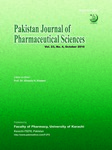 “Despite the staggering consequences of the opioid epidemic, limited nonopioid medication options have been developed to treat this medical and public health crisis.
“Despite the staggering consequences of the opioid epidemic, limited nonopioid medication options have been developed to treat this medical and public health crisis.
This study investigated the potential of cannabidiol (CBD), a nonintoxicating phytocannabinoid, to reduce cue-induced craving and anxiety, two critical features of addiction that often contribute to relapse and continued drug use, in drug-abstinent individuals with heroin use disorder.
Acute CBD administration, in contrast to placebo, significantly reduced both craving and anxiety induced by the presentation of salient drug cues compared with neutral cues. CBD also showed significant protracted effects on these measures 7 days after the final short-term (3-day) CBD exposure. In addition, CBD reduced the drug cue–induced physiological measures of heart rate and salivary cortisol levels. There were no significant effects on cognition, and there were no serious adverse effects.
CBD’s potential to reduce cue-induced craving and anxiety provides a strong basis for further investigation of this phytocannabinoid as a treatment option for opioid use disorder.”
https://ajp.psychiatryonline.org/doi/10.1176/appi.ajp.2019.18101191



 “In this review, we discuss the role of the endocannabinoid (eCB) system in regulating energy and metabolic homeostasis. Endocannabinoids, via activating the cannabinoid type-1 receptor (CB1R), are commonly known as mediators of the thrifty phenotype hypothesis due to their activity in the central nervous system, which in turn regulates food intake and underlies the development of metabolic syndrome. Indeed, these findings led to the clinical testing of globally acting CB1R blockers for obesity and various metabolic complications. However, their therapeutic potential was halted due to centrally mediated adverse effects. Recent observations that highlighted the key role of the peripheral eCB system in metabolic regulation led to the preclinical development of various novel compounds that block CB1R only in peripheral organs with very limited brain penetration and without causing behavioral side effects. These unique molecules, which effectively ameliorate obesity, type II diabetes, fatty liver, insulin resistance, and chronic kidney disease in several animal models, are likely to be further developed in the clinic and may revive the therapeutic potential of blocking CB1R once again.”
“In this review, we discuss the role of the endocannabinoid (eCB) system in regulating energy and metabolic homeostasis. Endocannabinoids, via activating the cannabinoid type-1 receptor (CB1R), are commonly known as mediators of the thrifty phenotype hypothesis due to their activity in the central nervous system, which in turn regulates food intake and underlies the development of metabolic syndrome. Indeed, these findings led to the clinical testing of globally acting CB1R blockers for obesity and various metabolic complications. However, their therapeutic potential was halted due to centrally mediated adverse effects. Recent observations that highlighted the key role of the peripheral eCB system in metabolic regulation led to the preclinical development of various novel compounds that block CB1R only in peripheral organs with very limited brain penetration and without causing behavioral side effects. These unique molecules, which effectively ameliorate obesity, type II diabetes, fatty liver, insulin resistance, and chronic kidney disease in several animal models, are likely to be further developed in the clinic and may revive the therapeutic potential of blocking CB1R once again.” “The nonpsychoactive phytocannabinoid, CBD, was recently approved by the Food and Drug Administration for the treatment of children with drug-resistant epilepsy. This milestone opens new avenues for
“The nonpsychoactive phytocannabinoid, CBD, was recently approved by the Food and Drug Administration for the treatment of children with drug-resistant epilepsy. This milestone opens new avenues for 
 “Recent evidence suggests that 2-week treatment with the non-psychotomimetic cannabinoid cannabidivarin (CBDV) could be beneficial towards neurological and social deficits in early symptomatic Mecp2 mutant mice, a model of Rett syndrome (RTT). The aim of this study was to provide further insights into the efficacy of CBDV in Mecp2-null mice using a lifelong treatment schedule to evaluate its effect on recognition memory and neurological defects in both early and advanced sta
“Recent evidence suggests that 2-week treatment with the non-psychotomimetic cannabinoid cannabidivarin (CBDV) could be beneficial towards neurological and social deficits in early symptomatic Mecp2 mutant mice, a model of Rett syndrome (RTT). The aim of this study was to provide further insights into the efficacy of CBDV in Mecp2-null mice using a lifelong treatment schedule to evaluate its effect on recognition memory and neurological defects in both early and advanced sta
 “Individuals with alcohol use disorder exhibit compulsive habitual behaviors that are thought to be, in part, a consequence of chronic and persistent use of alcohol.
“Individuals with alcohol use disorder exhibit compulsive habitual behaviors that are thought to be, in part, a consequence of chronic and persistent use of alcohol.